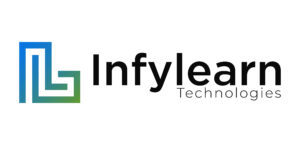Why Is Learning By Doing An Effective Educational Strategy?
On Experience, Engagement, And Effective Learning By Doing
Learning by doing, as it is called, is an effective technique practiced for ages. I remember the days when my father was behind me, teaching me how to ride a bike. It took me some time to learn, but soon I realized he was no longer behind me, and I was independently riding the bike. Of course, I had some small accidents along the way, but it was all part of the learning process. I can never forget the joy and confidence I experienced during this journey.
This experience made me reflect on the effectiveness of learning by doing. It underscores that engagement is one of the most critical aspects of learning. If you can engage your learner, you have achieved an important milestone. Engagement in the learning process promises undivided attention and complete participation. These two ingredients are crucial to ensuring that learning occurs and yields successful results.
The Role Of Engagement In Learning
Engagement is the cornerstone of effective learning. When learners are actively engaged, they are more likely to absorb and retain information. Engaged learners are not just passive recipients of information; they actively interact with the material, ask questions, and apply what they have learned. This active participation enhances understanding and retention, making the learning process more effective.
One way to achieve engagement is through experiential learning, where learners gain knowledge and skills by doing. This method is grounded in the idea that real-life experiences are the best teachers. By engaging in hands-on activities, learners can see the practical applications of their knowledge, which reinforces their learning and makes it more meaningful.
Why Is Learning By Doing Effective? The Science Behind Experiential Learning
The concept of experiential learning is not just anecdotal; it is supported by research. The learning pyramid, also known as the cone of learning, suggests that people remember:
- 10% of what they read
- 20% of what they hear
- 30% of what they see
- 50% of what they see and hear
- 70% of what they say and write
- 90% of what they do
These statistics highlight the importance of active participation in the learning process. By doing, learners engage multiple senses and cognitive processes, which enhances their understanding and retention of the material.
Experiential Learning In The Digital Age
In today’s world of eLearning, we need to develop various ideas for experiential learning to create a great learning experience for our learners. The digital age offers numerous opportunities to incorporate experiential learning into online education. Here are a few strategies:
- Interactive modules
Online courses can include interactive modules that require learners to actively participate. These might involve problem-solving activities, case studies, or interactive quizzes that provide immediate feedback. - Project-based learning
Assignments that require learners to complete projects based on real-world scenarios can enhance engagement and understanding. For instance, business students might develop a marketing plan for a hypothetical company. - Collaborative learning
Online platforms can facilitate collaboration among learners, enabling them to work together on projects, discuss ideas, and learn from each other. This mirrors the collaborative nature of many professional environments. - Gamification
Incorporating game elements into learning can make it more engaging and enjoyable. This might include earning points for completing tasks, competing in challenges, or progressing through levels as learners master new skills. - Simulations and Virtual Reality (VR)
These technologies can create immersive learning environments where learners can practice real-life skills in a safe, controlled setting. For example, medical students can perform virtual surgeries, and pilots can practice flying in a flight simulator.
The Future Of Learning
The future of learning lies in leveraging technology to create more engaging, effective educational experiences. By incorporating experiential learning into eLearning platforms, we can ensure that learners are not just passive recipients of information but active participants in their education. This approach not only enhances learning outcomes but also prepares learners for real-world challenges by providing them with practical skills and knowledge.
Conclusion
Learning by doing is a timeless and effective educational strategy that emphasizes engagement and active participation. In the digital age, we have the tools and technologies to bring experiential learning to new heights. By creating interactive, immersive, and practical learning experiences, we can ensure that learners not only understand the material but can also apply it in real-world situations.



